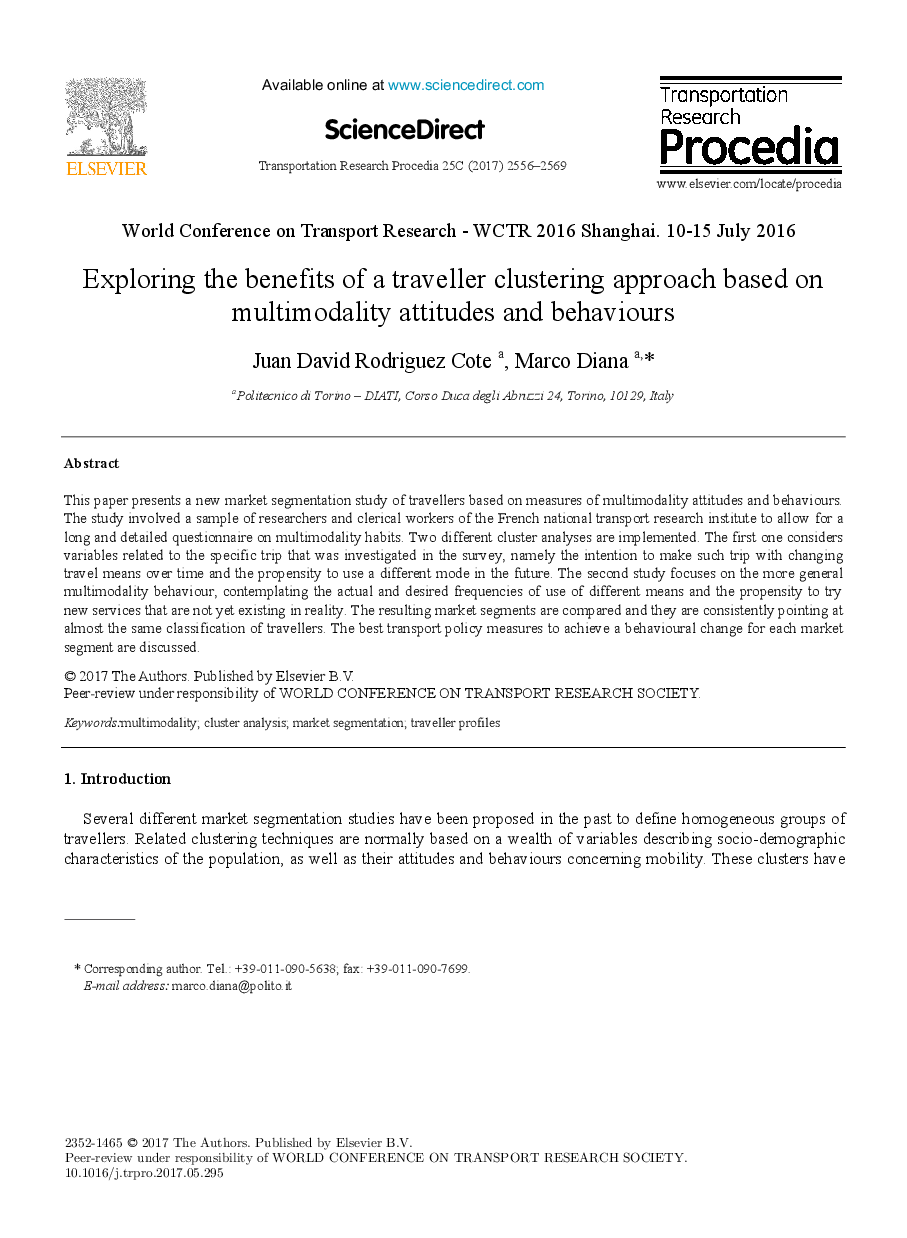ترجمه فارسی عنوان مقاله
بررسی مزایای یک رویکرد خوشه بند مسافر بر مبنای نگرش و رفتارهای چندبعدی
عنوان انگلیسی
Exploring the benefits of a traveller clustering approach based on multimodality attitudes and behaviours
| کد مقاله | سال انتشار | تعداد صفحات مقاله انگلیسی |
|---|---|---|
| 102072 | 2017 | 14 صفحه PDF |
منبع

Publisher : Elsevier - Science Direct (الزویر - ساینس دایرکت)
Journal : Transportation Research Procedia, Volume 25, 2017, Pages 2552-2565
ترجمه کلمات کلیدی
چند منظوره آنالیز خوشه ای، تقسیم بندی بازار، پروفایل های مسافرتی
کلمات کلیدی انگلیسی
multimodality; cluster analysis; market segmentation; traveller profiles;
ترجمه چکیده
این مقاله، مطالعه جدیدی از تقسیم بندی بازار مسافران را بر اساس معیارهای نگرش و رفتارهای چندبعدی ارائه می دهد. این تحقیق نمونه ای از محققان و کارکنان روحانی مؤسسه تحقیقات حمل و نقل ملی فرانسه را در اختیار عموم قرار داد تا پرسشنامه های طولانی و دقیق در مورد عادات چندجدی را ارائه دهد. دو تجزیه و تحلیل خوشه ای مختلف انجام شده است. یکی از متغیرهای مربوط به سفر خاصی که در این بررسی مورد بررسی قرار گرفت، یعنی قصد چنین سفر ایجاب می کند که با گذر زمان تغییر می کند و تمایل به استفاده از یک حالت متفاوت در آینده باشد. مطالعه دوم تمرکز بر رفتار کلی تر چندبعدی، با توجه به فرکانس های واقعی و مورد نظر استفاده از ابزار های مختلف و تمایل به سعی در خدمات جدید است که هنوز در واقعیت وجود ندارد. بخش های حاصل از بازار مقایسه می شوند و به طور مداوم تقریبا همان طبقه بندی مسافران را نشان می دهند. بهترین سیاست های حمل و نقل برای دستیابی به تغییر رفتار برای هر بخش بازار مورد بحث قرار گرفته است.

